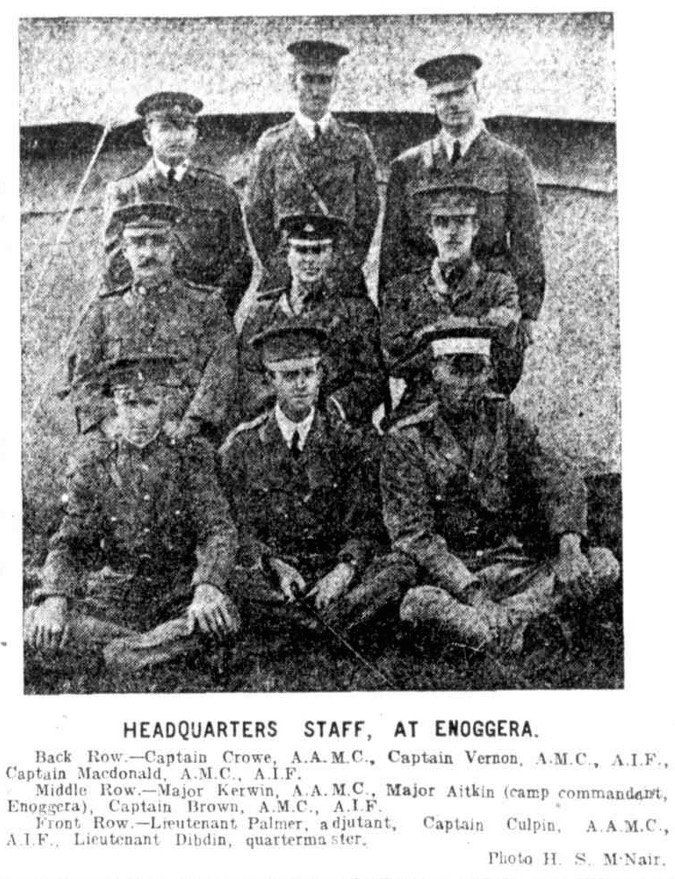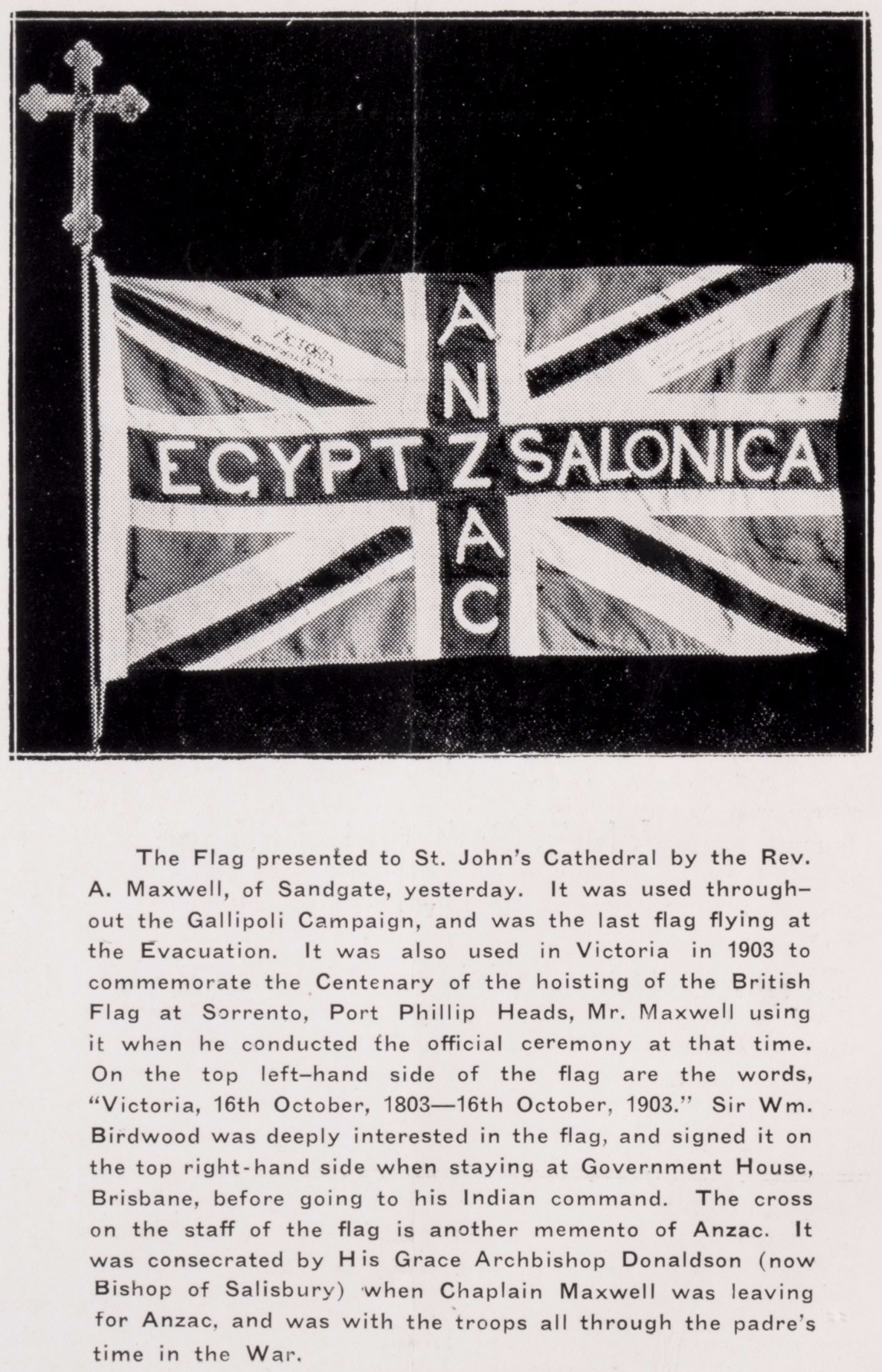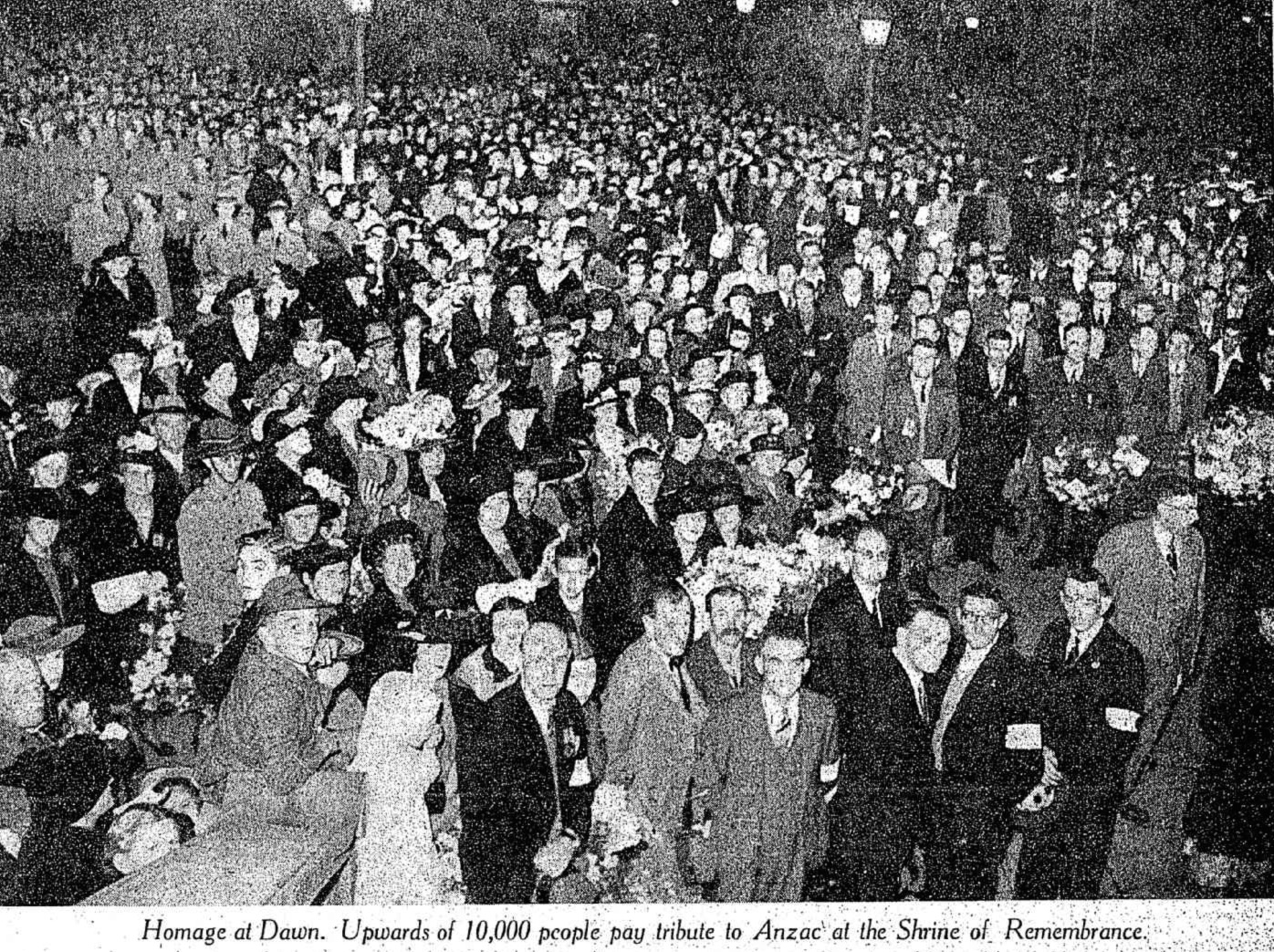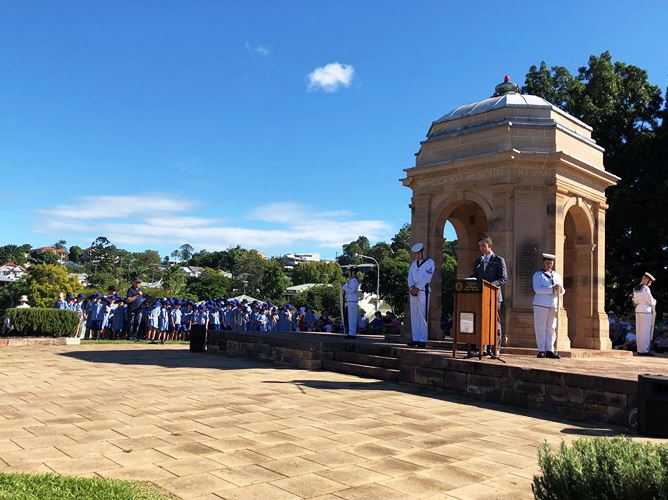ANZAC Day No.8

ABOVE: Future secretary of the Queensland branch of The Returned Sailors and Soldiers Imperial League of Australia, Edward John Dibdin, is pictured (end of the front row) with his fellow officers of the Enoggera training camp’s headquarters staff in April 1915. An accountant by profession, Dibdin had been in Central Queensland’s 1st Squadron of the 15th Australian Light Horse Regiment for some 12 years before enlisting in the First AIF at Rockhampton on 16 February 1916 at the age of 30. He earned the Distinguished Service Order because “during the period February 25th to September, 1918, Major Dibdin commanded the 42nd Battalion with great skill and initiative during the attack on Hamel on July 4th, 1918. On the 8th and 12th August he again skilfully commanded the 42nd Battalion with great drive and energy, attaining all his objectives. He commanded the 41st Battalion from the 31st August to 9th September during the advance from Mont St. Quentin to Roisel with marked success.” This photograph ran in Brisbane’s “The Telegraph” newspaper on 17 April 1915 (page 13).
Arrangements for marking
ANZAC Day in Brisbane, 1923
AT a meeting of the ANZAC Day Commemoration Committee this week Canon Garland [ David John Garland ] reported that the joint hon. secretaries had arranged for the publication of extracts from “The King’s Pilgrimage” in book form, and mentioned the assistance which had been given by the Premier and the Government in obtaining permission for the reproduction of portions of the letterpress and many of the illustrations.
It was decided that the 1923 celebration of ANZAC Day should be arranged on the same lines as previous years.
On Wednesday, April 25, the observance will commence with early morning services, followed at 9 a.m. by services in cemeteries where returned soldiers are buried, and it is particularly requested that flowers and wreaths shall be placed on the graves.
At 11 a.m. churches of all denominations will hold services throughout the State.
The Commissioner for Railways has been requested to stop all trains for one minute, the ANZAC Day Committee suppling leaflets to draw the attention of passengers to the reason for the stoppage, and asking them to lay their tribute to the men who fell, in common with those citizens attending Divine service.
In the afternoon a parade of returned soldiers will be had, as in previous years, while in the evening the public meetings at which all creeds and clauses join together in carrying uniform resolutions will be arranged by the local authorities.
The question of a public holiday was again discussed, the State Secretary of the [ The Returned Sailors and Soldiers Imperial League of Australia ] League (Major Dibdin) [ Edward John Dibdin ] voicing the desire of an industrial holiday.
After thoroughly considering the position, especially with reference to the unanimity and solemnity of the Queensland observance, it wan decided that a strong effort should be made to induce all employers to fall in with the committee’s suggestion and close during the hours of 10.30 and 12.30 p.m., in addition of course, to allowing all returned soldiers who desire to attend the celebration leave without loss of pay.
This recommendation was strongly supported by Mr. Myers King [ William Myers King ], representing the Brisbane Chamber of Commerce.
It was decided that application should be again made to the Education Department for the insertion of suitable articles in the school paper.
On the suggestion of Major Dibdin, the committee undertook to provide speakers in the schools in the metropolitan area, and to assist where possible in country schools.
As in previous years the churches are to be asked to provide lunch to returned men attending the morning services.
Badges will be again provided for sale, the proceeds to be devoted to the National ANZAC Memorial Appeal.
A request from the League that the committee should endeavour to make the celebration of Armistice Day more truly representative of the joy which its advent caused soldiers and citizens alike was agreed to, Archbishop Sharp [ Gerald Sharp ] speaking in favour.
The representatives of the League stressed the excellent work which had been done by the ANZAC Day committee in inaugurating and keeping alive the celebration, and maintaining the truly representative character of the committee, which was unique in being composed of representatives of all sections of the community, both religions and political.
– from page 6 of “The Queensland Times” (Ipswich) of 24 February 1923.


